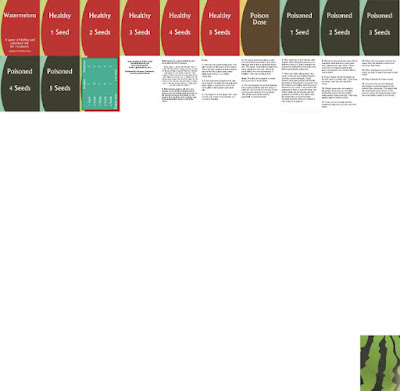This review is spoiler-free. I promise!
Much praised, but eternally out of print, it seemed
Sherlock Holmes Consulting Detective was merely stuff of myth. Until I found myself in Dublin one day, looking at a boardgame store which had a stack of about twenty copies! Brilliant! The game has been reprinted and is supposedly widely available, so now's a good time to offer my thoughts.
Sherlock Holmes Consulting Detective, puts players in the shoes of a bunch of crime solvers, trying to beat the legendary Sherlock Holmes at solving ten famous cases. Each game, players try to solve one case. A casebook is pulled out of the box, a great big map of Whitechapel is spread out on the table, and relevant newspapers from the period are passed around. One of the players (this can be played solo or with... well, maybe up to 6 or so players) reads out the introduction to the case from the casebook -- usually someone has been murdered -- and players must then decide where to take their investigations. Immediately, of course, there will be witnesses to speak to, perhaps a suspect, crime scenes to visit, places from the victim's history, something related to an event in the day's paper, or maybe just the coroner or the detectives at Scotland Yard. As a group, you must decide where to go and who to speak to, and will then turn to the relevant page in the casebook, reading out the next scene in your investigation.
The aim is to solve the crime, while visiting as few places as possible. When you think you have all the details that you need, you turn to the back of the casebook, where you will be presented with a set of questions - usually along the lines of
who did the crime and
how did they do it? There is also a bunch of bonus questions often related to vice which is tangential to the main crime in the case, but may have come up if your investigations went in the wrong direction. You get points for each question you answer correctly and then deduct points for each additional location you had to visit in order to get the correct answer. You will also see Sherlock Holme's score to compare with your own, and a rundown of how he managed to solve the crime in some inhumanly quick manner.
Getting to the bottom of a crime is an incredibly rewarding experience! Between debating where you should head next, unearthing some key bit of info from a newspaper, collating some older information, and reading out the very well written (if badly translated) scenes from the casebook,
Sherlock Holmes Consulting Detective had my game-group on the edges of the seats.
Well, they were all engaged that is, except for one player, who roundly denounced it as not her kind of game. And I can see why. This game is not for everybody. You really have to be a storytelling kind of person. This friend of mine isn't and she got very hung up on some of the stretches in logic that the game requires. Occasionally, you will get a case where you end up chasing the most bizarre of leads to find the solution. I can't elaborate too much without spoiling things, but in one case we had to ask ourselves, "wait, why are we wandering over this part of town again?"
And there are a few other things that can be a little frustrating. For instance, there is no mechanic there for questioning a suspect or witness a second time. Even if you later found out that they had been lying, you cannot go back and get them to clarify. Also, the game doesn't have any inbuilt mechanics for dealing with multiple players - nothing really changes between a one player game and a six player game. I feel like there were a few opportunities to explore interesting ideas and the opportunities that are provided by boardgames, and
Sherlock Holmes Consulting Detective didn't look into these ideas. It sticks too closely to a choose-your-own-adventure format.
One major complaint I've seen online, but I cannot agree with at all, is that the game lacks replayability. Once you have played the ten cases in the box, you can't play them again because you'll know the answers. This is true, but each case takes around an hour to solve, and I can't think of many hour long games I have played more than ten times. I think you get plenty of game in the box!
So yeah, I sincerely recommend checking out
Sherlock Holmes Consulting Detective. It's not perfect, but it does a lot of fun and interesting things. If you have the right kind of game group, I think you'll get a lot out of this title.
Colourblind Information
Colour is not used in any meaningful way.


